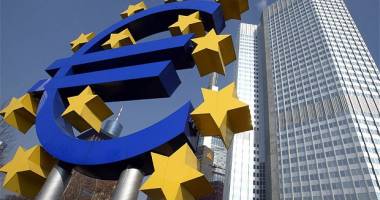 ECB staff allegedly developing a plan of quantitative easing in the amount of 500 billion of Euros, which can be run at the next ECB meeting on January 22. According to sources, the bank's employees wonder whether to disclose the monthly target of asset purchases, as well as a common goal.
ECB staff allegedly developing a plan of quantitative easing in the amount of 500 billion of Euros, which can be run at the next ECB meeting on January 22. According to sources, the bank's employees wonder whether to disclose the monthly target of asset purchases, as well as a common goal.
Assets, that will be included in this program, will be only investment-grade, and the purchase of assets excluded some of the most troubled members of the European countries such as Greece and Portugal.
If believe that this information is true and the ECB will announce its first QE program at a meeting on January 22, there is one of the main questions: how it may affect the EUR?
The EURUSD fell by more than 14% last year, partly due to expectations of QE from the ECB. To understand how quantitative easing may affect the single currency, it is worth paying attention to the experience of the United States. In a research report from San Francisco’s Fed for April 2013 said that QE did have an impact on the US dollar, but only when the market was caught by surprise.
The report also came to the conclusion that the sudden movement in interest rates affected the dollar more than unexpected actions on QE. The sudden reduction in interest rates led to a decline of the dollar by 7%, compared with 5% in QE.
If the news of ECB plans is true, then the element of surprise is no longer relevant for the euro. In addition, 500 billion of Euros can be seen as a disappointment. Since we do not expect to see any unexpected reductions in interest rates, which could move European rates to even more negative areas, the impact of the QE program at EUR may be limited in the future.
To sum up, based on recent conversations about the potential QE program, any policy’s announcement on January 22 will have only a limited impact on the euro. While we continue to believe that the euro looks vulnerable, the rate of decline of the single currency may slow down as we approach the next ECB meeting.
If the ECB really wants to have an impact on financial markets, then it needs to think about the possibility to shock them, announcing QE program in the amount of 1 trillion of Euros or more.







